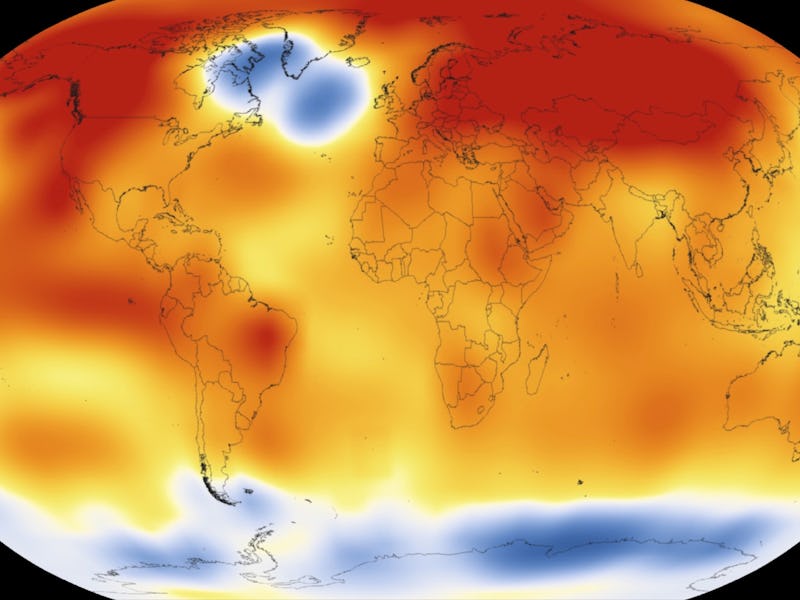Why Is NASA Working With Rio de Janeiro on Climate Change?
Collaboration is key to preparation and mitigation.

Facebook went live from Battery Park in lower Manhattan on Wednesday morning — with officials from Rio de Janeiro, New York City, and NASA — to talk about climate change, sea level rise, and Hurricane Sandy.
It might have seemed like an awkward threesome, but it was actually a perfect one: The event highlighted a partnership between NASA and the Brazilian capitol that aims to help that city and others around the world to become better prepared and more resilient in the face of climate change effects.
“When Sandy hit, our coastal defenses were really non-existent,” said Susanne DesRoches with the City of New York. But the hard lessons from that storm — 14 feet of storm surge, flooded subways, evacuated communities, and destroyed infrastructure — are helping not only New York but also other cities prepare for a new normal.
So what’s NASA got to do with an Earth-bound activity? Turns out NASA makes significant contributions to earth science, as well. Many of the space agency’s satellites in orbit around this planet look down, not up. And from those, a wealth of data is produced that is incredibly relevant to cities facing the effects of climate change, including high-resolution information on warming temperatures, rising seas, and changing landscapes.
The agency’s Earth Sciences Division wants to help local governments make the most of the data available by showing them what’s available and how it might be put to use. It’s forged relationships with major cities on each continent, which serve as hubs to spread teachings regionally. Officials from Rio de Janeiro are in New York this week so that the cities might learn from each other on how to deal with rising seas, worsening storms, and increasingly unpredictable weather.
Rio de Janeiro, Brazil, in 1984 and 2015. Urban development can raise temperatures locally and make it harder for storm water to run off into the environment naturally.
It’s possible that this publicity could be part of NASA’s push to announce to America and the world the value of its Earth science missions. President-elect Donald Trump’s space policy advisor, Robert Walker, has laid out plans to “redirect NASA budgets towards deep space achievements rather than Earth-centric climate change spending.” At the very least, it’s consistent with the larger Trump vision of ignoring climate change and its impacts in hopes of reinvigorating the U.S. fossil fuel industry.